With new plan for multi-language learners, Concord School District shifts support for New American students
| Published: 04-26-2024 4:34 PM |
Every time Leanna Kenza laces up her sneakers and steps on the track, it gives her reprieve from the day-to-day drama of eighth grade and the chance to find a new friend.
While most Rundlett Middle School parents were enrolling their kids in sports in sixth grade, Kenza assumed she’d be left out. Her parents didn’t know how to complete the online sign up form. Even if they did, they wouldn’t have the ability to get to and from practice.
Kenza then met Kathy Kitchell, the education liaison at Rundlett, who works with New American families. Kitchell enrolled her in track and got her a new pair of sneakers. After practice, she gave her rides home and made sure she attended meets.
“I felt like that with her helping us that we got to experience what middle school sports are like,” Kenza said. “Without her, I wouldn’t have known that I’m good at the sport. … Now, my whole life depends on sports.”
Kitchell has worked with students like Kenza for the last six years, serving as a school support and bridge to families who may be unfamiliar with the district. She can help when language is a barrier and ensure students are signed up for field trips and included in the day-to-day of Rundlett that might otherwise be elusive.
For five years, Kitchell spent 30-hours a week in school, meeting students in her office or sitting with them at lunch. But this year, her time in Concord was reduced to eight hours, as similar needs grew in other districts and Ascentria Care Alliance, her employer, reworked her contract.
At a Concord School Board meeting in April, after the board voted to approve their new $107.9 million budget, Kitchell urged the district to consider funding her position as a full-time role.
Instead, a new three-year plan for “multi-language learners,” which should be introduced to the board by the end of school year, will help provide more uniform support for all students in the district.
Article continues after...
Yesterday's Most Read Articles
 Steeplegate project to reopen to public comment as developer seeks to reduce required parking
Steeplegate project to reopen to public comment as developer seeks to reduce required parking
 A turbulent 50-year history: Inside the rise and fall of a tiny Catholic college in Warner
A turbulent 50-year history: Inside the rise and fall of a tiny Catholic college in Warner
 Students and staff welcome the opening of new Allenstown K-8 school
Students and staff welcome the opening of new Allenstown K-8 school
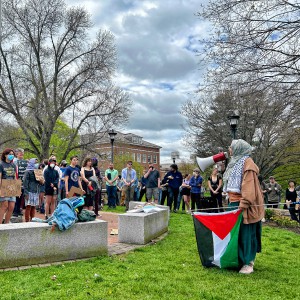 UNH faculty and students call on university police chief to resign following his alleged assault on a student
UNH faculty and students call on university police chief to resign following his alleged assault on a student
 High schools: Friday and Saturday results
High schools: Friday and Saturday results
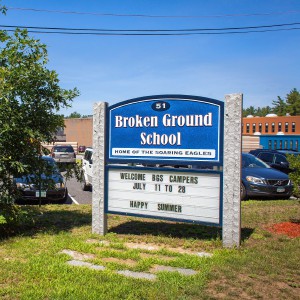 School Board to vote on new Broken Ground principal nominee
School Board to vote on new Broken Ground principal nominee
Still, Kitchell knows the 50 students she serves could continue to benefit from the additional support her position provides.
“I am not fighting for this position for myself, I’m fighting for this position for somebody to be at that school,” said Kitchell. “I am terrified leaving these children.”
Ahead of the school board meeting, Kitchell sat down and wrote a two-page list of her responsibilities in the district – connections, meetings, paperwork, transportation, staff interaction.
The significance of her role can be seen in her daily interactions that could be lost in her absence, she said.
After a sixth-grade boy was told that of course he knew how to read and to sit back down, Kitchell comforted him after class. He speaks three languages fluently, but English is not one of them.
When Kitchell sits in on administrative meetings with students, she’ll watch as the student nods in agreement to every word. Yes, they understand what they did wrong. Yes, they understand the consequences. Yes, it won’t happen again, they say. But when Kitchell asks the student if they really know what the adults are talking about, the answer is no.
“It’s valuable to be in there,” she said. “Kids aren’t going to go to someone that they don’t know and haven’t formed that trust with. They’re not going to go to them and say, ‘I don’t understand’.”
That was the case for Kenza and Aldofina Kisembe, another eighth-grade student. Once Kitchell helped them register for sports in sixth grade, she became an adult in the building that they could trust.
She knows their parents and siblings. Throughout the school year and over the summer, she’ll check in with them.
“I just got really close with her,” said Kenza.
But now they feel her reduced hours in their time at school. Most days when the girls want to find Kitchell at Rundlett, they’ll have to write their name on a sign-up sheet on her door instead, indicating that they want to talk to her the next time she’s in the building.
“Last year when she was here a lot, we always went to her if we needed help, but this year, she only comes two days a week,” said Kenza. “Whenever we need help, we just have to wait.”
In the corner of John Fabrizio’s office, a white sheet of poster paper hangs on the wall. It’s been there for three years, since he started as the district’s assistant superintendent for student services, with “ELL” written in large black marker letters.
The poster page is a long-term to-do list Fabrizio made to help English language learners in the Concord School District. Now, it’s coming to fruition with a formal three-year action plan that he hopes to present to the school board by the end of the year.
The action plan stems from a report published last year by UpRiver Education, outside consultants hired to evaluate the English Learner Education Program.
With it, UpRiver presented three suggestions: establish a coordinated multi-language learner playbook that clarifies policies and expectations for teaching; increase data collection on demographics and English language acquisition that is accessible to all teachers; and provide access to professional development to inform “culturally responsive education.”
The suggestions come with three pillars to guide the work. The plan should build upon students’ current cultural and language background, provide equitable access and opportunity and foster a connection, and a sense of safety and belonging in the district.
Kitchell’s reduced hours with Ascentria come at a time of shifting needs and approaches within the school district, said Fabrizio. In his tenure, he has spearheaded conversations about broad-based support for students – trying to break down responsibilities to err against solely meeting the needs of specific populations, rather than the entire student body.
That support comes from a combination of adults in the district in his office, from the director of student and staff wellness to the diversity, equity, inclusion and justice coordinator.
“It’s more of a universal support to support those students within the system, versus someone like Kathy who is connecting to that refugee population and supporting only that population,” he said. “So that’s the shift.”
The shift also comes with a team of staff to implement it across the district’s five elementary schools, Rundlett and Concord High School. The high school has two social workers and nearly a dozen counselors. One of the social workers is for multi-language learners, specifically. In the middle school, a social worker is on staff alongside the school’s four counselors. At the district’s elementary schools, full-time counselors work at Broken Ground, Mill Brook and Beaver Meadow, while Christa McCauliffe and Abbot-Downing share a position.
“Every building is supported pretty equal,” he said. “I’m feeling good. It’s a good budget and it’s got a lot of supports in it. Can we always use more? Of course”
Plans to move the middle school across town to East Concord will bring a new connection to Rundlett for many families living on the Heights, said Fabrizio. Families will have sports fields closer to their neighborhood and the ability to walk to school for performances or back-to-school nights.
“I’m excited about the new middle school, because I think it’s going to naturally break down some of these access barriers,” he said. “The access question comes to me because of language barriers and socio-economical barriers, and location barriers. A lot of our population is over on the East side, across the river.”
But the geographic shift means little to Kitchell if there’s not proper support within the school for the students it will house. And that goes beyond her hours.
At Central High School in Manchester, New American families have access to a welcome center, where students can seek out tutors and parents can learn about school policies. Kitchell wonders why there isn’t a space like that in Concord.
But the reality is that enrollment has fluctuated in the district over the last five years for multi-language learners. For the 2021-2022 school year, 320 students were enrolled, with 77 at Rundlett. This year, the number is down to 266, with 67 middle school students.
Fabrizio attributes this to the state’s housing crisis, with little affordable housing in the area for New American families to resettle. But Kitchell fears that ahead of the 2024 election, an influx of new arrivals may hit the state before there is a potential administration change in the White House.
That’s all to say that in Kitchell’s eyes, the demand for her role still exists.
It’s a precarious spot for the district because administrators did not choose to cut her role. Instead, Ascentria reduced her hours, with the need for an education liaison growing in districts like Franklin and Manchester. Instead of replacing the grant-funded position, Fabrizio knows Kitchell’s work was essential and now hopes Concord’s multi-language learner plan will provide the same support for students, just with different resources.
“We became stronger because of that partnership,” he said. “Our families benefited from it.”

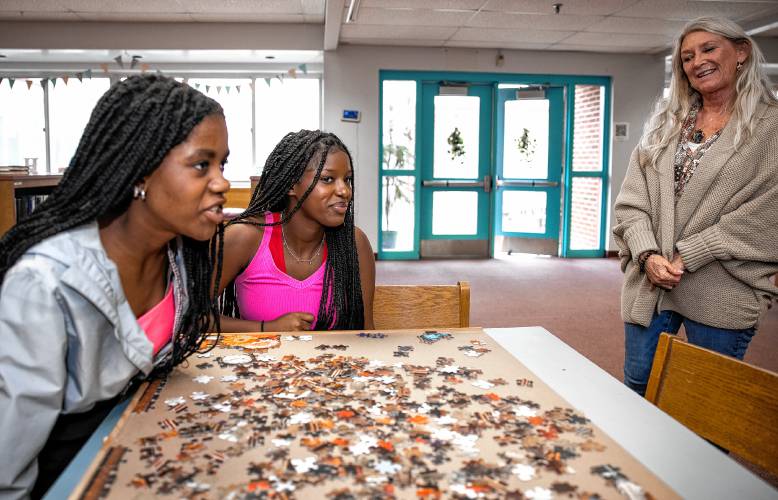
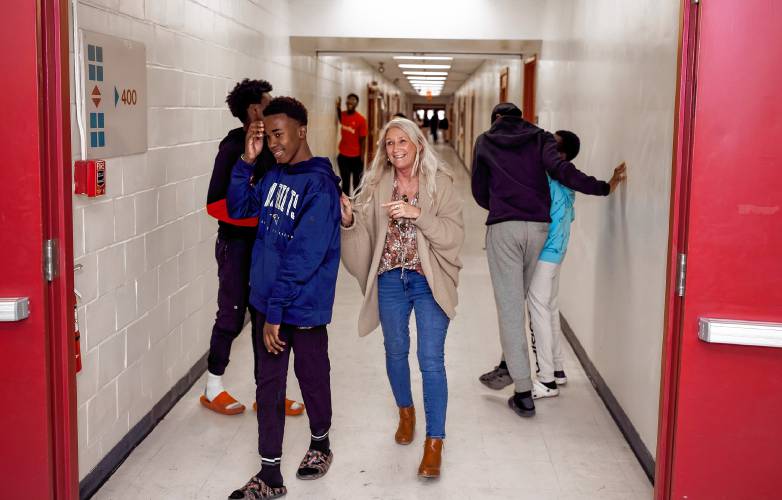
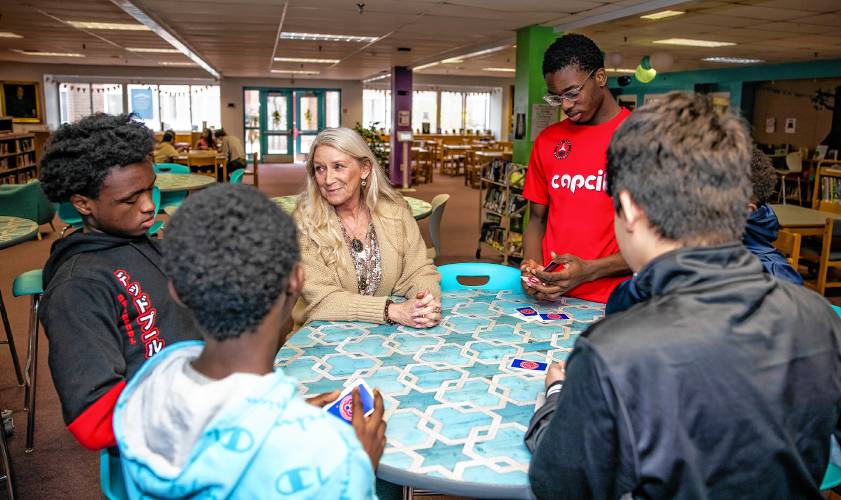

 Granite Geek: Free government software for taxes – what could go wrong? (Not much, as it turns out)
Granite Geek: Free government software for taxes – what could go wrong? (Not much, as it turns out) To snuff out cancer, NH firefighters seek regular screenings
To snuff out cancer, NH firefighters seek regular screenings New Hampshire jury finds state liable for abuse at youth detention center and awards victim $38M
New Hampshire jury finds state liable for abuse at youth detention center and awards victim $38M Jurors hear closing arguments in landmark case alleging abuse at New Hampshire youth center
Jurors hear closing arguments in landmark case alleging abuse at New Hampshire youth center
